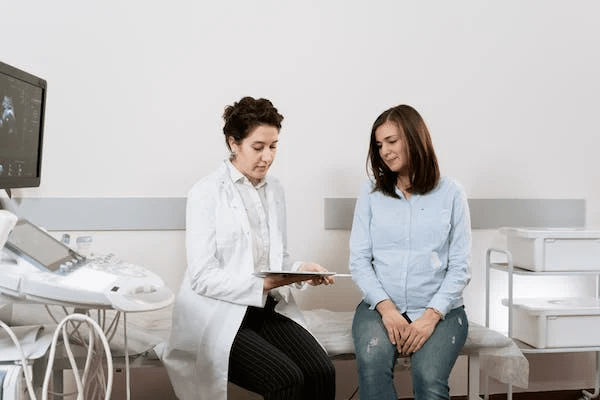Reproductive health signifies a state of complete physical, mental, and social well-being in all matters related to the reproductive system. It implies that people can have a satisfying and safe sex life, the capability to reproduce, and the freedom to decide if, when, and how often to do so. One must understand one’s body and reproductive functions to maintain optimal reproductive health. It is essential for individuals, societies, and communities because of its profound impact on the world’s population. Here, we’ll focus on the role of the HCG (human chorionic gonadotropin) hormone in reproductive health for both men and women.
1. Fertility Treatment in Both Genders
HCG injections are used in women undergoing IVF to trigger egg maturation and release, mimicking the natural hormone surge that leads to ovulation. In men, HCG stimulates sperm production. Combined with specific peptides, it can boost natural testosterone production, potentially improving fertility. It’s especially beneficial for men with hypogonadotropic hypogonadism, as it prompts the testes to produce testosterone, boosting sperm production.
Applying HCG in fertility treatments in both genders can significantly increase the chances of conception, lending hope to many people struggling with fertility issues. However, as with all medical treatments, therapy must be administered under the supervision of a healthcare provider to manage the dosage and monitor any potential side effects.
2. Stimulating Ovulation in Women
HCG plays a significant role in stimulating ovulation in women. It is often called the “pregnancy hormone” because it is produced in large amounts during pregnancy. However, it also has crucial functions in the ovulation process. Injecting HCG can stimulate the release of an egg (or eggs) from the ovaries, an essential process for ovulation.

This is particularly useful for women who struggle with ovulation due to polycystic ovary syndrome (PCOS) or other hormonal imbalances. In such cases, HCG is often used with other fertility medications to enhance ovulation and improve the chances of conception. It’s important to note that the use of HCG should be done under the guidance of a healthcare provider to ensure safety and effectiveness.
3. Supporting Early Pregnancy
After a successful conception and implantation, the newly formed placenta starts producing HCG. This hormone signals the corpus luteum— the remnant of the follicle that produced the egg — to continue producing progesterone. Progesterone is pivotal in maintaining the uterine lining to create a supportive environment for the growing fetus.
A decline in progesterone levels may lead to miscarriage, which establishes the importance of HCG in sustaining early pregnancy. It’s also the hormone detected in pregnancy tests to confirm pregnancy. Consequently, monitoring levels in early pregnancy can help healthcare providers assess the progress of pregnancy and identify potential complications, such as ectopic pregnancy or miscarriage.
4. Regulating Testosterone in Men
In men, HCG is crucial for regulating testosterone. It acts like luteinizing hormone (LH), stimulating Leydig cells in the testes to produce testosterone. This benefits men with hypogonadism, a condition marked by low testosterone levels. Regular administration helps maintain intra-testicular testosterone levels, promoting normal sperm production and sexual function.
It’s often used as a testosterone replacement therapy (TRT) to prevent testicular atrophy and preserve fertility. However, like any other medication, the use must be supervised by a healthcare provider to manage the dosage and monitor potential side effects effectively.
5. Detecting Pregnancy Complications
Doctors may recommend HCG testing to monitor the progress of a pregnancy and check for any potential complications. Measuring HCG levels helps identify ectopic pregnancies, molar pregnancies, placenta previa, or any other conditions that may lead to miscarriage. It is also used in prenatal screening tests to detect chromosomal abnormalities like Down Syndrome in the baby.
Additionally, testing may be recommended to diagnose and track the progression of certain cancers such as choriocarcinoma, germ cell tumors, and ovarian cancer. This helps healthcare providers determine the most suitable treatment plan for their patients.
6. Aiding in the Diagnosis of Certain Conditions
In men, elevated levels of HCG can sometimes indicate testicular cancer, especially when accompanied by symptoms such as testicular swelling or lumps. Similarly, in non-pregnant women, high HCG levels may signal the presence of certain types of ovarian cancer, including germ cell tumors and choriocarcinoma. Furthermore, tests can diagnose pituitary disorders causing hormone imbalance, as the pituitary gland in the brain produces a small amount.
An abnormally high or low level of HCG could thus indicate a pituitary disorder. It’s important to note that while testing can be a valuable tool in initially diagnosing these conditions, further tests are often required to confirm the diagnosis and determine the most appropriate treatment plan.
HCG plays a crucial role in reproductive health for both men and women. It aids ovulation, sustains early pregnancy, and helps diagnose and track certain conditions. Consulting a healthcare professional is vital if you plan to use it. They can ensure proper usage and administration for optimal results. With guidance, HCG can be a valuable tool for managing reproductive health.



